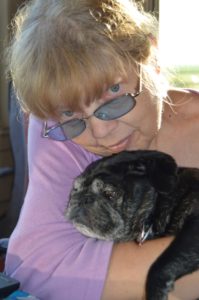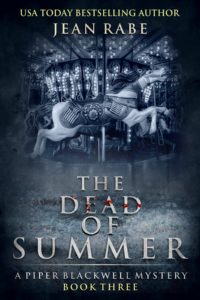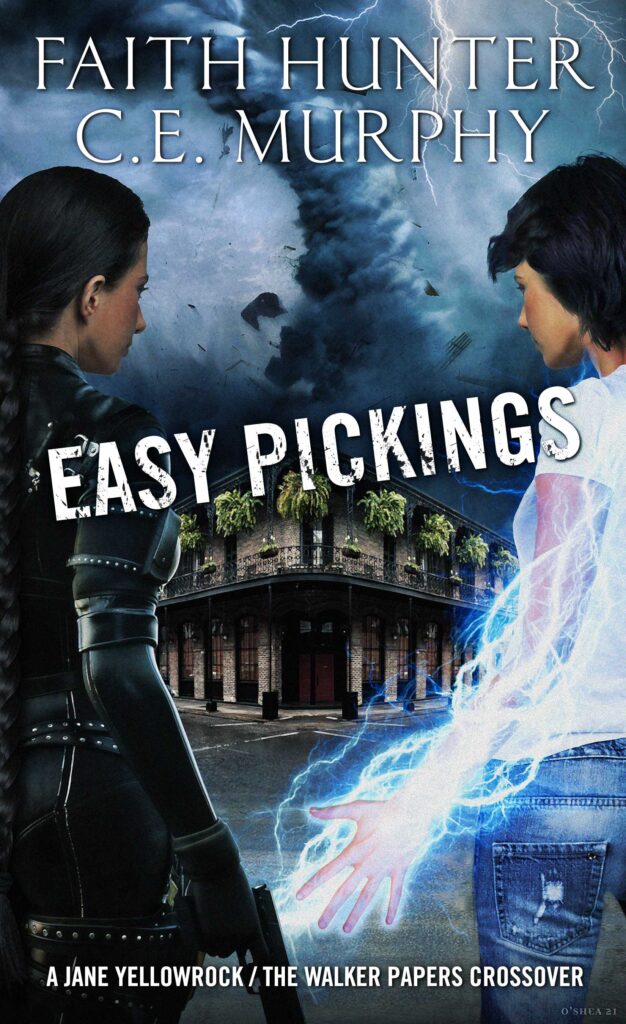From Dragons and Dungeons to Squad Cars
Learning the art of mystery writing
I’ve written a lot of books—well, I think it’s a lot—forty. Most of them are fantasy and science fiction. While I was writing those books, I didn’t read other fantasy novels. I didn’t want to be influenced, even subconsciously, by other writers in my genre. I read mysteries and thrillers instead.
And I discovered that I really liked mysteries and thrillers.
Eventually, I realized that I wanted to write mysteries and thrillers more than I wanted to write fantasy yarns.
But writing a traditional mystery is a lot different than spinning a fantasy tale. The world is real; I can’t make it up. I have to follow roadmaps and pay attention to events and real-world laws. I had to learn police procedure, legal rights, and understand firearms.
I had to take myself to school.
I read “How to write” mystery books, attended mystery-writing conventions such as Bouchercon, and I read even more mysteries. I ghost-wrote modern-day adventure books to get a feel for real-world settings, guns, and car chases.
I immersed myself in the whodunit realm.
Some folks in the writing industry told me not to switch writing paths; that I’d chosen a course and I needed to stick to it, that I had an audience. I had agents tell me that they didn’t want to represent an author that wrote in multiple genres. Urgh. So I represent myself.
I also had some fellow writers encourage me to do what I wanted, and to not adopt a pen name. Let your fantasy fans find your mystery books, they said. I took that advice. Many of my fantasy fans read Piper Blackwell. Cool beans.
Life is too short not to write what you want.
It wasn’t all that hard, learning to write mysteries. I knew how to throw sentences together, and my fantasy books had mysteries within them. I think every good yarn has a mystery. In the traditional mystery field I just wouldn’t be able to rely on magic, dragons, ghosts, and their ilk. Monsters? There are monsters in traditional mysteries … of the human kind. I knew how to plot, structure a story, and build characters. And I’d read so many mysteries that I knew I didn’t know enough.
But I knew how to research.
And so I could learn to tell a traditional mystery tale.
I have books on forensics, firearms, and courtroom procedure in my office. I have friends in law enforcement, friends who are attorneys and doctors and nurses. And I’m not afraid to call coroners and government officials to ask questions. I scan one or two newspapers online every morning, saving articles that could be springboards for stories.
“Back in the day” I was a news reporter, and I covered cops and courts. I pulled on that experience, and in some cases I’ve used actual incidents I reported on.
As for pacing, I outline. I want to know where my action is going, and I want there to be several high points along the route. I can’t stand boring books, so I try to keep the “boring” out of my mysteries. That said, I have a scene in this Piper book where she stops on a county road just to watch the fireflies. Some folks might find that boring, but it’s something I like to do. I figured Piper might also like it.
Lingo? You gotta put cop lingo in a police procedural.
I knew from my newspaper days that cops swear. Sometimes they swear a lot. So I make sure my sheriff and her deputies swear … at least a little. One reader wrote me that I could never write a cozy because I use profanity. But I want my cops to be realistic. Those friends in law enforcement that I mentioned? I run sections of my book past them, and they tell me the police codes and jargon I need to throw in. Finally, I make sure to watch a few of those live-action police shows on television. I listen to how the cops talk.
I hope Piper Blackwell and her deputies get the words right.
 Jean Rabe has written 40 novels and more than 100 short stories, has made the USA Today Bestseller list a few times, and lives in Central Illinois surrounded by cornfields and railroad tracks. When she’s not writing, she plays with her dogs, fuses glass jewelry, reads, and visits museums.
Jean Rabe has written 40 novels and more than 100 short stories, has made the USA Today Bestseller list a few times, and lives in Central Illinois surrounded by cornfields and railroad tracks. When she’s not writing, she plays with her dogs, fuses glass jewelry, reads, and visits museums.
The link to The Dead of Summer: https://www.amazon.com/Dead-Summer-Piper…/dp/B07TZQL5WZ/
Amazon author page: https://www.amazon.com/Jean-Rabe/e/B00J1QR5U2/ref=ntt_dp_epwbk_1
Personal webpage is at www.jeanrabe.com
I have a newsletter filled with tidbits about my upcoming books, reviews of things I’m reading, and writing advice. You can subscribe here: http://jeanrabe.us14.list-manage1.com/subscribe?u=89364515308e8b5e7ffdf6892&id=940\4531a4b
EXCERPT!
5 p.m. Friday, June 14th
The gut-punching clang of metal striking metal merged with the screams of fairgoers. Sheriff Piper Blackwell swore hell had broken loose in Spencer County.
Piper dropped her corn dog and raced into the wall of noise just as a BOOM made her think a mortar had exploded. The screams grew louder and a kaleidoscope of colors–the summer attire of the agitated crowd–filled her vision.
“Nooooooo!”
“Call an ambulance!”
“Outta my way!”
“Get some pictures!”
“Mary’s on that thing. Dear God, my Mary!”
Piper’s gaze angled above the heads of the panicked throng as she pushed forward.
Fast.
Faster, pulling out her badge and holding it high as if that might buy her more space amid the press of people.
The fingers of her free hand dipped into a pocket for her cell phone as she rushed toward the metal monstrosity.
“Teegan!” Piper hollered into the phone.
“Did you see the boys flying?” This from a big man she stepped around.
“Think they’re dead?”
“Dead. Dead. Dead.”
“The whole thing’s gonna go!”
“Dear God, Mary!”
“There’s the sheriff!”
“Where’s my kids?”
“Call 9-1-1.”
“Somebody call 9-1-1!”
Piper was quite confident everyone was calling 9-1-1, as Teegan was not answering.
“Teegan, pick up the damn phone,” Piper willed as she hurtled a fence around the Strawberry-Go-Round, vaulted over a bench, and closed on the broken ride, a tilting, towering contrivance called the Cosmic Odyssey. It looked like a mangled Ferris wheel on steroids, and it leaned precariously. People strapped in on higher levels flailed and shrieked. Riders close to the ground were unbuckling themselves and jumping.
Parents wailed and pushed forward while fair workers tried to hold them back.
“Teegan! Teegan!” Piper tried.
Finally a reply.
“Sheriff.”
“Teegan! SOP Mass Casualty Response. County fairgrounds.” SOP—Standard Operating Procedure. Piper shivered; she’d practically memorized the department’s procedure manual and the CALEA—The Commission on Accreditation for Law Enforcement Agencies—policies for emergencies involving mass casualties. But knowing about it was far removed from putting it all into operation. Piper never expected it to come into play in rural Indiana.



